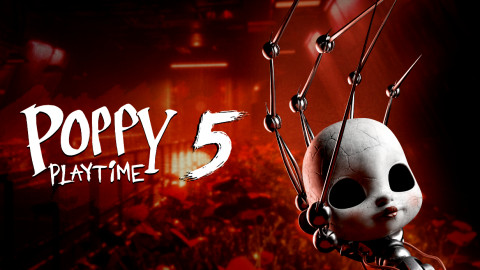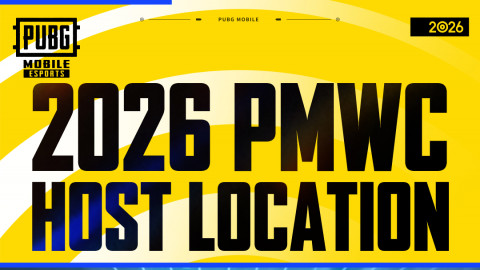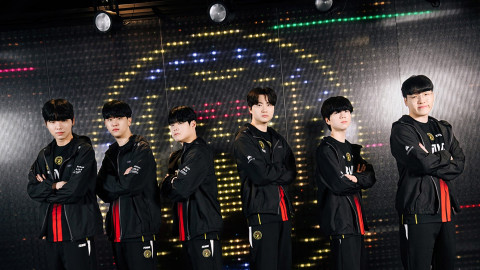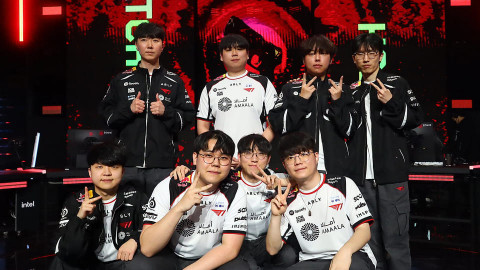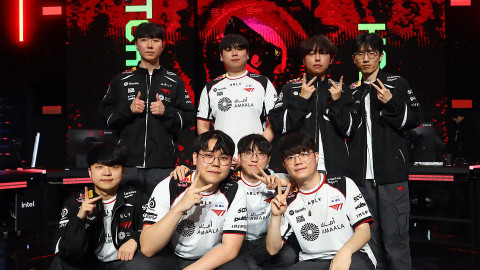What is the core of all sports industries? Players, general managers, coaches, and owners are the people that come to mind most often, but there is one more profession that can not be left out as sports industries develop. Agents. It is not so surprising to see an agent make their mark in sports, and famous agents are widely known by many fans.
In the still-young esports industry, however, ‘agents’ are still an unfamiliar sight. Even though esports players are beginning to make comparable salaries with other sports athletes, many esports players still negotiate their own contracts. In fact, the number of esports agents is so small, you could probably count them with two hands.
In the esports agency industry, there is one person that is diving into this empty ocean. That person is Barry Lee, who is currently active in North America. Barry assists Korean players looking to enter the NA esports scene, and he also represents North American players. After studying at George Washington University Law School, Barry is now an influential agent in the North American esports scene. What about him convinced players to work with him?
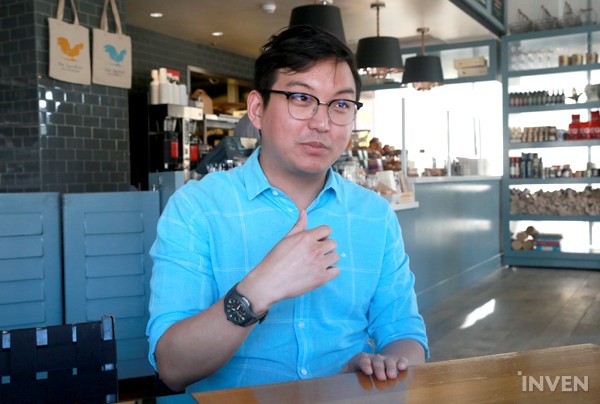
Related in-depth Interview : How esports agents support your favorite pros - Interview with Barry Lee
Q. You interviewed with us 1 year ago. What changes have there been in the esports agency scene?
With the start of the Overwatch League and the growth of Fortnite, we [Evolved Talent Agency] have so much more to do. With also the growth of the esports industry as a whole, large Hollywood agencies have been making their move into esports as well.
Q. 1 year ago, you said that there weren’t many competing agencies. Are there more now?
It hasn’t changed that much. (laughs) There are two other agencies competing against us at the moment. We are ‘Evolved Talent Agency.’ One of the competitors is ‘Agency for Professional Esports (APE)’ and another was PressX, but they were acquired by United Talent Agency.
Of these esports agencies, we currently represent the most clients. We recently partnered with a Hollywood agency called ICM Partners. A lot of Hollywood agencies are currently looking at esports and are researching how they can break into the scene at the moment.
While there have been changes to the industry, the past year has been a big year for me as well, personally. Last November I began to represent a lot of players. I currently represent 15 players in the NA LCS. Some of the Korean players I represent are Huni, Lira, and Olleh. I’ve been helping Impact on and off as well. Impact wasn’t 100% sure if he wanted to hire an agent quite yet, so I told him that we should work together when he’s sure. I try not to pressure players into things they’re not sure they want.
In the Overwatch League, I represent 6 Korean players: Carpe, Jjonak, Pine, Birdring, Fury, and OGE. I began to get more players as I became more well known amongst the players. To be honest, at first, I tried to keep my client list small. If an agent represents too many players, players aren’t sure if the agent can help them properly. Still, players keep reaching out, so I feel like I’m doing something right.
Q. I know that you also represent coaches as well.
I did in the past. Coach Ssong is still one of my clients. I still represent the coaches I’ve been previously representing, but I probably won’t represent new coach clients from now own.
It’s not that there have been specific issues with them. The more I thought about it, I just thought it was inappropriate to represent coaches while representing players. Coaches have the power to choose rosters in many cases, so I realized that representing both sides could cause potential conflicts of interest.
Q. I am curious about the current state of the Overwatch League.
It’s grown immensely. I know that the Overwatch League has been very successful in acquiring sponsorships. They’ve signed multi-year deals with big companies like Toyota. Even though it’s their first year, I’ve heard they have earned a lot of money. I think the Overwatch League is doing business well.
However, they are still behind in league operations and player management. The LCS has a lot of experience in those areas, so they’re very good at it. Also, the Overwatch League doesn’t start sharing revenue until 2020, while the LCS will start sharing revenue right away this year.
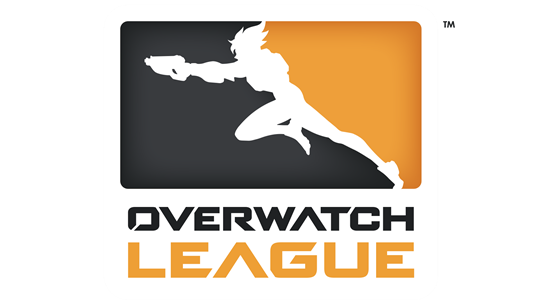
Q. What did you see in the Overwatch League to dive into that scene?
OWL players are guaranteed a minimum salary of 50,000 dollars. That said, there are not a lot of players who make just that. Many make more than that, and we analyzed how much we could earn if we entered that scene. We decided that it would be a good idea to all-in on the Overwatch League.
The OWL has a large prize pool, and they pay out to even the lowest ranked teams. Since the basic structure of the league was well designed, we could jump into the scene with confidence.
Overwatch players did not know much about agents, so it was a fresh opportunity for us. At first, I only represented Birdring. After that, Carpe hired me and the number of players I represented grew. Our agency as a whole currently represents about 60-70% of the western OWL players.
In League of Legends, after the agent fiasco with Korean players in China, there has been some negative perceptions about agents. Though, as player salaries have gotten bigger, players have begun to hire more agents.
Q. You mentioned there are other agencies competing against you guys in North America. What are the strengths of Evolved Talent Agency compared to them?
Our strength is our network. Usually, a team owner operates teams in many different titles. We have good relationships with many team owners. For example, if an owner who runs a LoL team wants to start a Fortnite team, they often ask us if we represent any good players in Fortnite.
Our agency operates in many different titles. LoL, Overwatch, Rocket League, Fortnite, PUBG, and more.
We can speak with confidence to players in new titles about what players can and can’t get from negotiating with a specific. Our relationships with owners are good, and we know what personalities they have when negotiating. That’s information players cannot come by easily on their own.
Q. You work in both LoL and Overwatch. Are there differences in the contracts?
OWL contracts are little more simple to work with. Blizzard gave teams a standard contract to use, and there isn’t a lot that can be changed there.
LCS contract differs from team to team. I have seen similar contracts between teams, but nothing standardized. The new teams owned by NBA teams have a more ‘sports-like’ feel to the contracts, and teams owned by media companies have a different feel to them as well. But at their core, the contracts are generally similar as the team owners share ideas with each other.
Q. A lot of new teams joined the NA LCS this year. Were there any difficulties negotiating contracts with them?
Currently, it’s a little difficult for players to have personal sponsorships, and there are not a lot of brands that want to sponsor just players. Some teams do not want their players to have personal sponsorships as well. From a team’s perspective, they want brands to sponsor the organization as a whole rather than individual players.
Some teams make lists of prohibited sponsorships. For example, drink or peripheral brands are prohibited. In many cases, teams will not allow sponsorships in categories where the team has a sponsor already. If a team has a mouse sponsor, then a player can not have a personal mouse sponsor.
With LCS teams, as long as you get permission from them, you can pursue a personal sponsorship, but with Overwatch, you have to check in with the OWL as well. Even with all of that, we still work hard to find our players personal sponsorships. OWL Player Jake recently had a sponsorship deal with a clothing brand.
As I previously said, in order for a player to get a personal sponsorship, the team has to give permission, and that is where the strength of an agent’s relationship with the team is important. If there’s a good relationship, teams will be more likely to give permission.
These days, brands tend to try to sponsor leagues or individual players over teams. When brands sponsor leagues, they do it with the idea that if they’re going spend a lot of money, they would rather just spend a lot with the league. Conversely, when brands sponsor players, they are trying to get the most bang for their buck. For teams these days, the amount of promotional content they make is important in getting sponsorships.
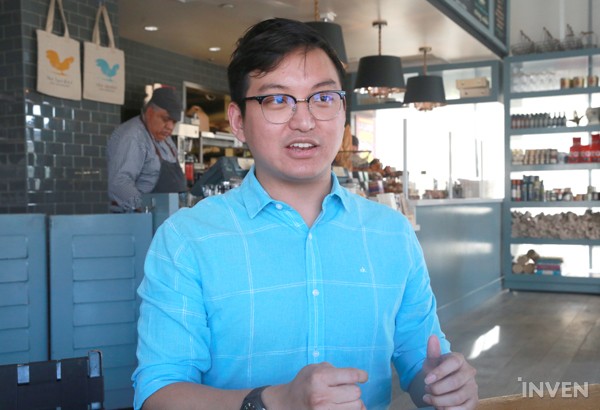
Q. You said that because of what happened in China created a bad image of agents. Have you ever had trouble connecting with a player because of it?
I think being honest is the most important. I never try to talk only about the good side of things and say, “In this situation, I think ABC is good, but XYZ might be bad.” I give the player the right to make decisions, even if they want to take a risk.
What I tell players all the time is that our agency is a tool that the players can utilize. The players decide which direction they want to go, and if they want or need something, our role is to look into it for them.
Q. Who did you have the most trouble signing with?
Huni. He’s very smart. Smart people are generally particular about what they want. Huni may still be young, but he’s already thinking about how to invest the money he’s made so far.
Huni is very meticulous and knows exactly what he wants. He negotiated most of his own deals with previous teams, so he knows what he wants better than I do. I tried to give Huni options along the lines of what he wanted and negotiated his deal with his team.
It’s actually much easier to work with players like that. If I’m doing something wrong, they let me know right away. In the short term, it can seem troublesome, but it’s much better for the long-term.
Q. You used to offer free consulting for players even if they were not signed with you. Do you still do that?
Yes I am. Players in the lower tier leagues do not earn as much quite yet, so I try to help every player I can for free. If a player I help grows and signs with us then, that’s good for us. When players aren’t happy with the teams they’ve signed with or have other problems, they ask me questions. While we do not directly solve their problems, we give them advice.
There are fewer inquiries in the middle of a season. There’s way more in the off-season. In particular, a lot of player and coaches that want to come to North America reach out.
If I had to point out something, a player being unable to speak English isn’t that big of a problem. However, it’s very difficult for coaches to work in North America if they don’t speak English. As franchising started, the front offices for teams wanted coaches that could speak English. Many teams want the coach to be a part of the front office and be able to communicate and represent their wishes. If the team can not communicate with the coach, that becomes difficult.
Q. Have you thought about working in Korea? As players’ values increase, wouldn’t there be a need for agents?
Since I live in the United States, that’s physically a bit difficult. You need to be able to meet players face to face, but that would be difficult currently. There’s also the time zone difference. Though I can’t go into details, the Korean scene is a very difficult place for agents to operate in. In order to make a move into Korea, we would need to invest a lot of time and resources, and in the current environment, there’s no real need to. There is a lot of obstacles.

Q. As the esports agency industry will keep growing, I feel there may be more people with interest in this field. Do you have any advice for them?
As the industry is still in its infancy, having a strong network is the best. Since we represent players, we need people who have good relationships with players.
It’s not a huge problem to teach people how to be an agent. Even if you know how to be an agent, it’s problematic if you don’t have any connections with players. It is difficult for us to make those relationships for them as we need to do business right away. It’s okay if you don’t have strong legal knowledge for now, though this may change in the future.
If you want to become an agent, I would recommend trying to work for a team. That is the best way to create relationships with players. Many teams offer internships these days. I remember that last month, Cloud 9 put out a hiring notice. Keep checking teams’ social media accounts.
Q. What did you do to establish relationships with teams?
There is no other method for business networking besides starting from the bottom. I was the in-house manager for NRG esports for a season. To be honest, I was the players’ babysitter (laughs). My role was to make sure they sleep, make sure they wake up and make sure they eat. I also organized their schedule for media interviews as well. At that time, GBM and ohq played for NRG.
Before that, I worked at OGN and got to know MonteCristo. Through him, I was able to get connected with teams. Since I was active in the esports scene, I had a good base to build from when our agency scouted me. I knew a lot of Korean players, spoke English, and was studying law.
Q. I want to change the subject a bit. There has been a lot of talk about Meteos being traded. In traditional sports, trades are commonplace and an obvious fact. How do contracts in LoL deal with them?
There’s nothing standardized quite yet, and each team has very different contracts. In most LoL esports teams, though, the team has full power on how trades are handled. Due to that, I think that’s why we trade happen like they would in traditional sports.
In Meteos’s case, I speculate that he may have asked to be traded. Even though esports teams may have the right to make trades, they do not trade as freely as traditional sports teams. Meteos, in particular, is a well-known player who played well. Unless there was a specific problem I do not think 100 Thieves would have traded him. The player probably requested it.
If there was something to regret about that situation, I think it would be that 100 Thieves should have expected information to leak and dealt with the issue more swiftly. There’s a lot of esports journalists, and it’s hard to keep everything confidential.
There is one thing I do want to say here. I tell my players this all the time. “If you were traded right now, where do you think you can go? There’s no reason for the top teams to make trades right now. If you do get traded, it’ll be to team lower in the rankings.”
If the player really dislikes his team, sometimes there is no other option, but if you think about a player’s value, getting traded might not be a good choice. In the middle of a season, teams trade quickly because they are in a time-sensitive situation. I think it is better to have a long talk with the team in the off-season or inquire about a trade then.
If players feel that they are being treated unfairly in these situations, they need to form a labor union to be on the same level as the teams or the leagues. There are associations, but no labor unions. The NA LCS Player’s Association cannot be a labor union by US federal law because they are funded by Riot. They can not become a labor union with that structure.
I think the current NA LCS Player’s Association is just a place where players can meet and discuss issues. I think players just need to keep learning as incidents happen, or really put forward more of an effort to change the structure.
Q. After hearing what you said, it seems that trades can happen easily.
Yes. However, in the NA LCS there are only 10 teams, so it is not an easy environment for trading players. If the number of teams increases or there are more substitute players, then that might change. In the OWL there are 12 teams, and there have already been a lot of trades.
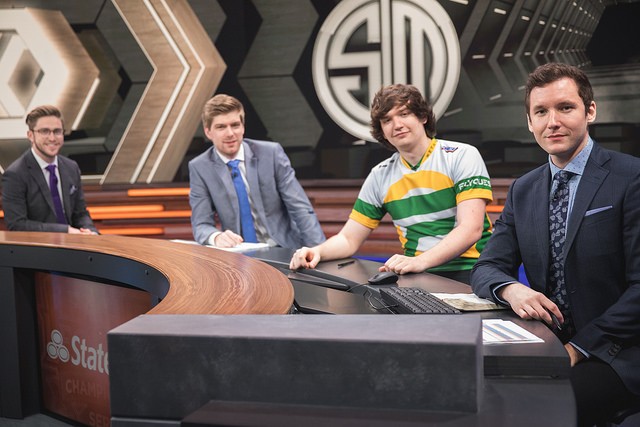
Q. Let’s change the subject again. What are your goals as a person or as an agent?
As an agent, I want to be someone that represents star players in various esports. Eventually, I want players to think, “If I want to become a star, I need to work with Barry.” In the NBA or in Hollywood, there are famous agents and agencies. I’d like to become that for esports.
As a person, I want to be more like my father. My father is the Korea regional president for a US company, and he started from the very bottom of the ladder. He has a lot of experience working with people, and I talk with him a lot about my work. Players are my clients and customers, so I ask him about what I can do to increase their level of trust in me. He is my role model.
Q. Now that you have been working with esports players for a while, do you have any advice you would like to share?
I tell this piece of advice to the players I represent all the time. I want to tell everyone if I can. It’s free. (laughs)
A player’s individual performance might be important, but before that, they need to be good teammates, outside of the game. Every player slumps. Honestly, every player has. Huni had his, Faker had his. When they are in a slump, if they aren’t a good teammate, their team or teammates do not want to help them. They get left behind.
However, players who have good skills and are a good teammate eventually recover from a slump. The problem is if the team and other teammates give them that time. If the player is a good teammate, they will always be given that time and be given resources to be helped. I’ve seen this happen many times. If you aren’t a decent teammate, you just end up bouncing around between teams.
Sometimes players complain and want to be traded. But LoL and Overwatch is a team game, so you have to be a good person and a good teammate. If a teammate ends up moving to another team, if you have a good relationship with them they can recommend that their team pick you up as well. That is how players can maintain longer careers. I talk about this to my players endlessly. To become good people.
Q. It seems like you are pretty close with your players.
Yes. I think I am closer with my Overwatch players. My LoL players have had longer careers and are older, so it tends to be more of a business relationship. Conversely, the Overwatch players are much younger and it’s easier to befriend them.
In Overwatch, I think I’m closest with Birdring. When Birdring joined OWL he had a lot of complicated issues involving his previous team and we got close as we tried to solve the situation. In LoL, I’m close with Lira and Olleh. Lira’s pretty quiet so he does not say much (laughs). Olleh is just as bright as he appears.

Q. So the offseason will begin again in a couple months. Do you have anything to say to players that want to move teams?
Overwatch players will have a lot of opportunities. When the new season begins, and though this is not confirmed yet, I think there will be more teams. Working with an agency will be undoubtedly helpful. Since we already have connections with many OWL teams, we can inquire about open positions across the league in one go. Through an agency, players can be more proactive in finding a team. When players look for teams on their own, they wait for teams to reach out.
It’s still unsure if the NA LCS will expand. I heard rumors that they might consider it. With the start of franchising, most players signed multi-year contracts. There aren’t many players that signed only 1-year contracts. So I think there may not be many opportunities for Korean players to transfer to NA. There’s also the import slot rule to consider. Unless you’re a star player, it might be difficult. There might be open positions with lower ranking LCS teams, but I’m not sure about mid and top ranking teams.
I mainly use Twitter to reach out to people. If there are any other questions, feel free to reach out. Though I focus on LoL and Overwatch, players who play other titles should not let that stop them from reaching out. I can connect you with our other agents.
Q. Do you have anything to say to end the interview?
I give a huge thanks to the players who signed on to work with us. We just started fairly recently, so we were a bit of an unknown quantity, but they still decided to work with us. I will work hard to repay that trust given to us. I will do my best.
I would also like to thank ICM Partners, who we partnered with recently. We are comparatively a much small company, and we are very thankful that they believe in us and help us keep the lights on.
To all esports players, I would like to give this advice again. Please strive to become a good person and a good teammate. Please foster good personal relationships. As long as you do that, even though your performance may not be the absolute best, you will always have value as a player.
Sort by:
Comments :0



